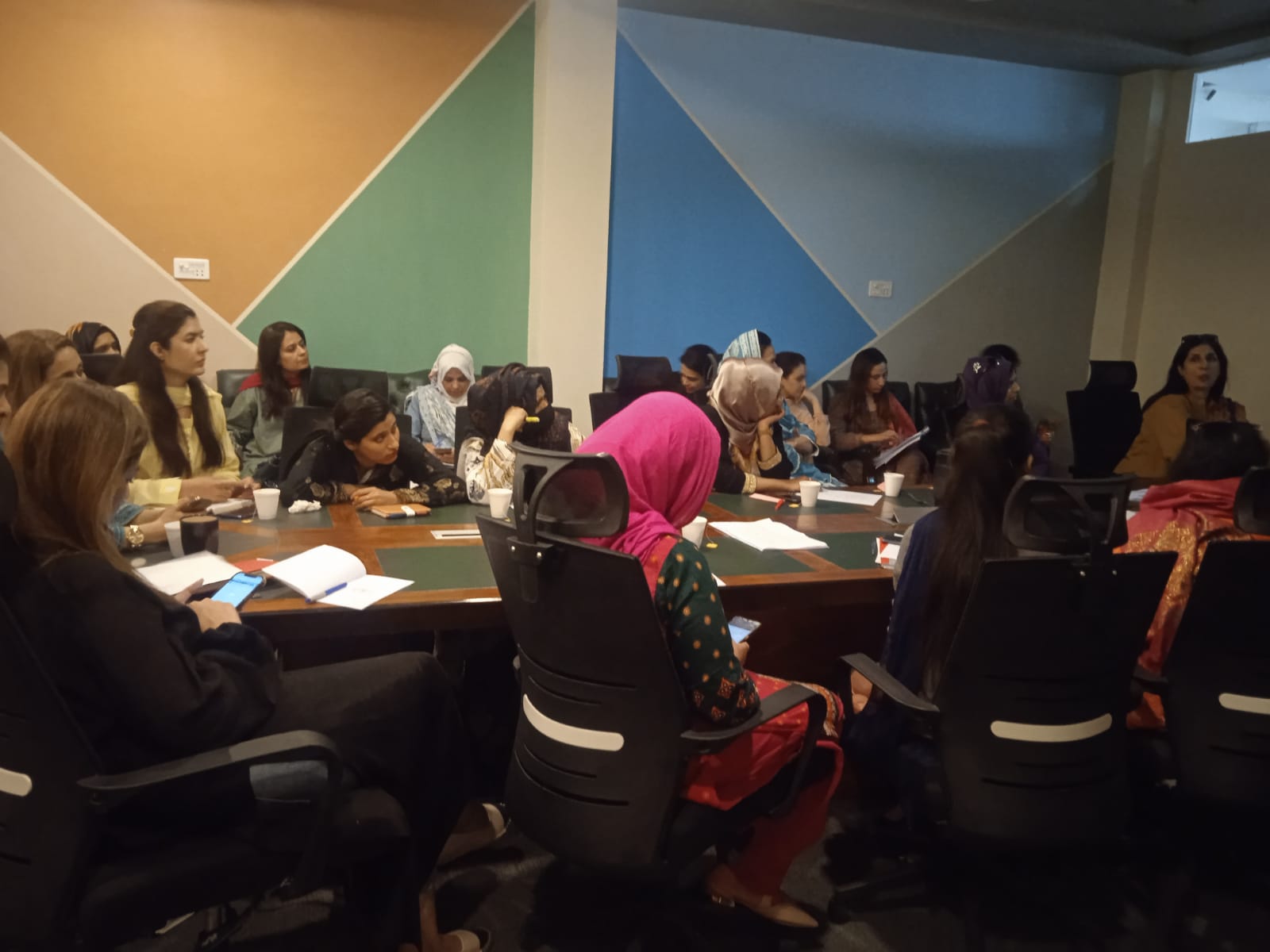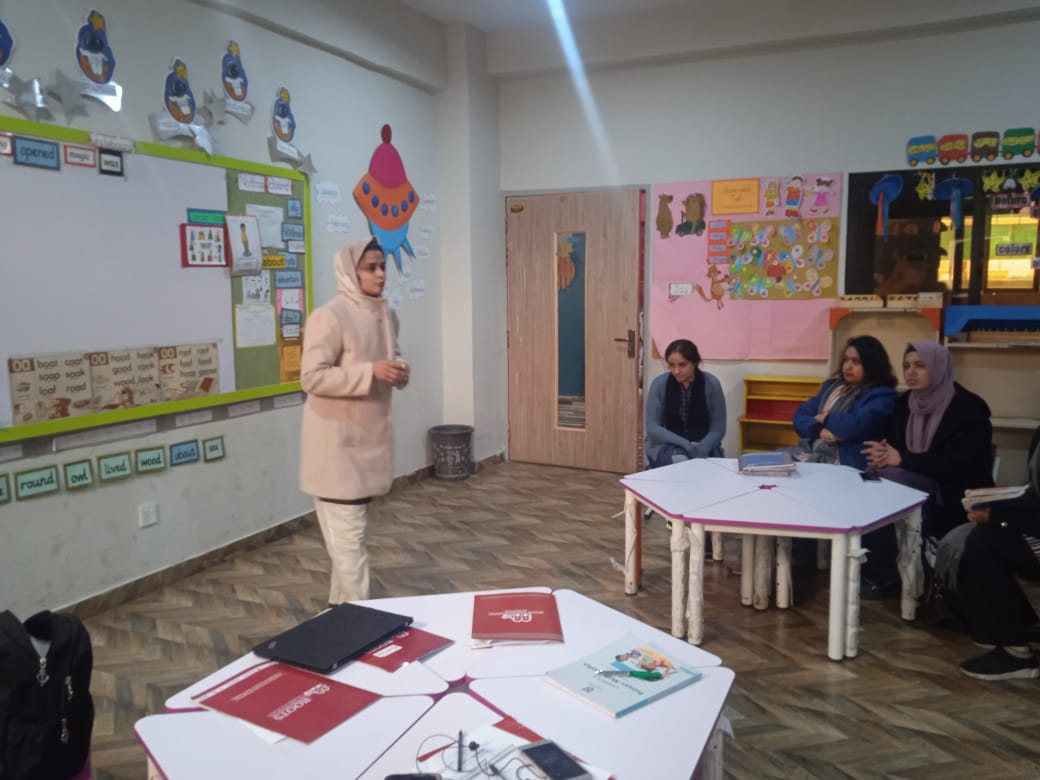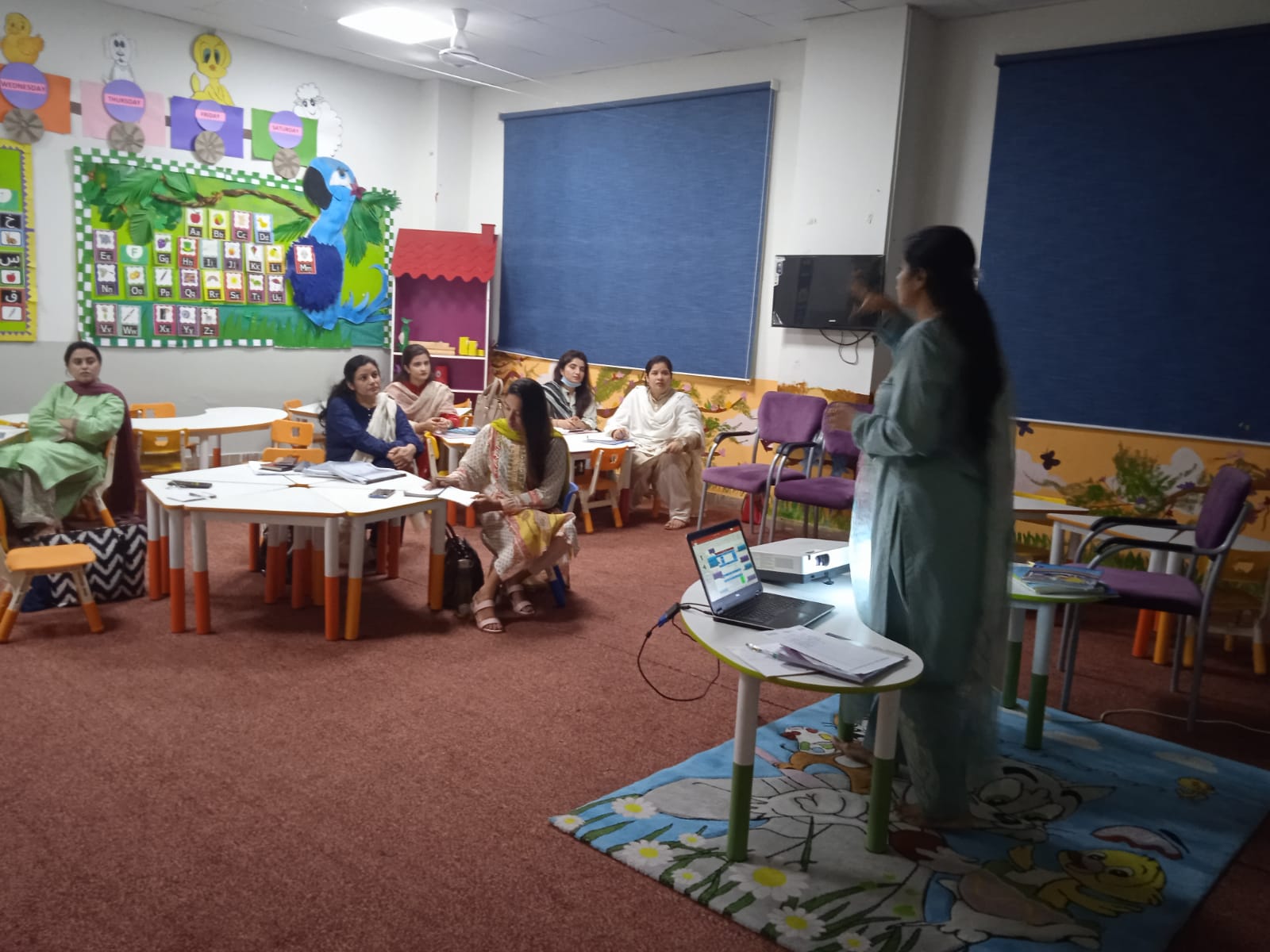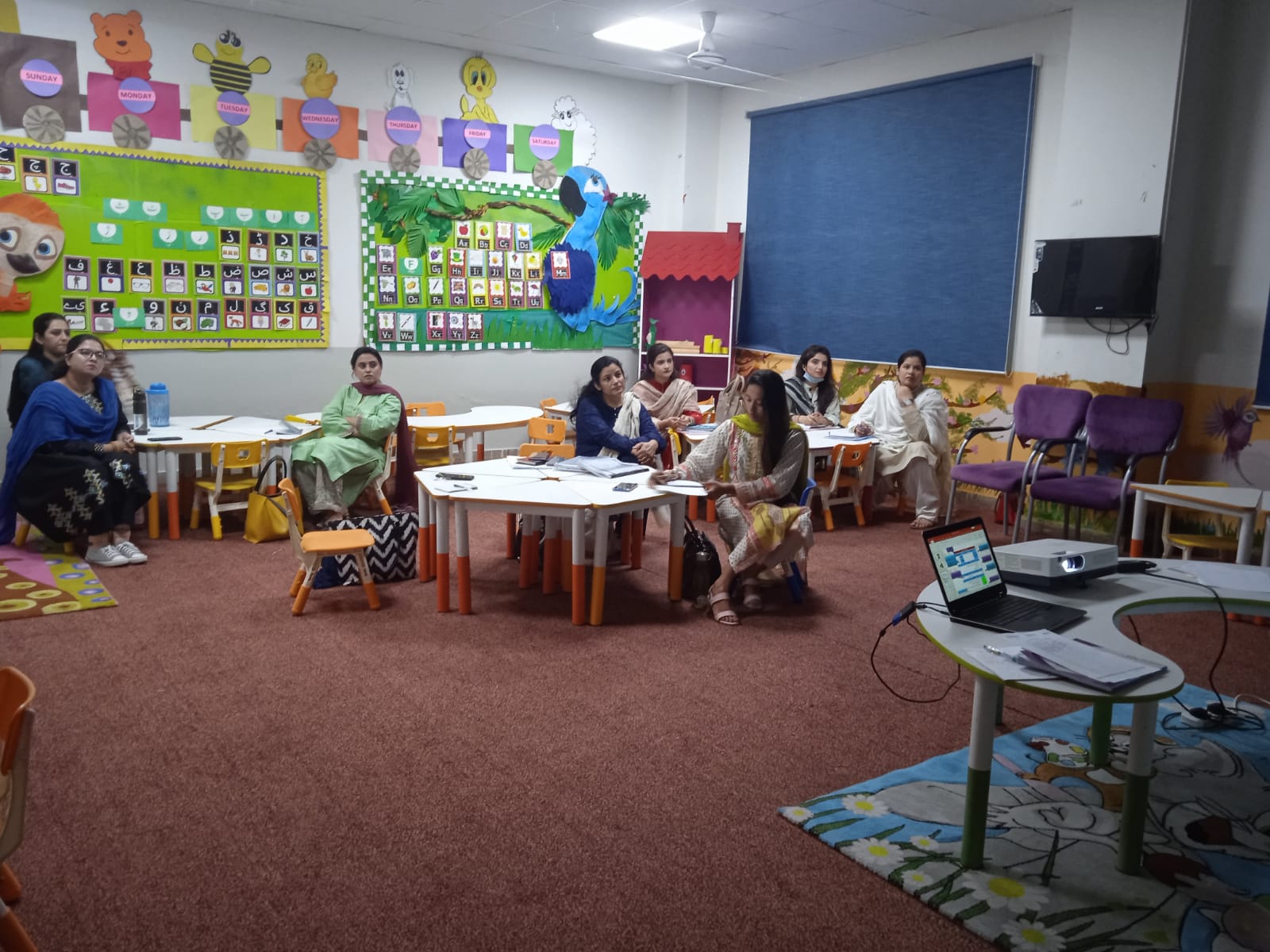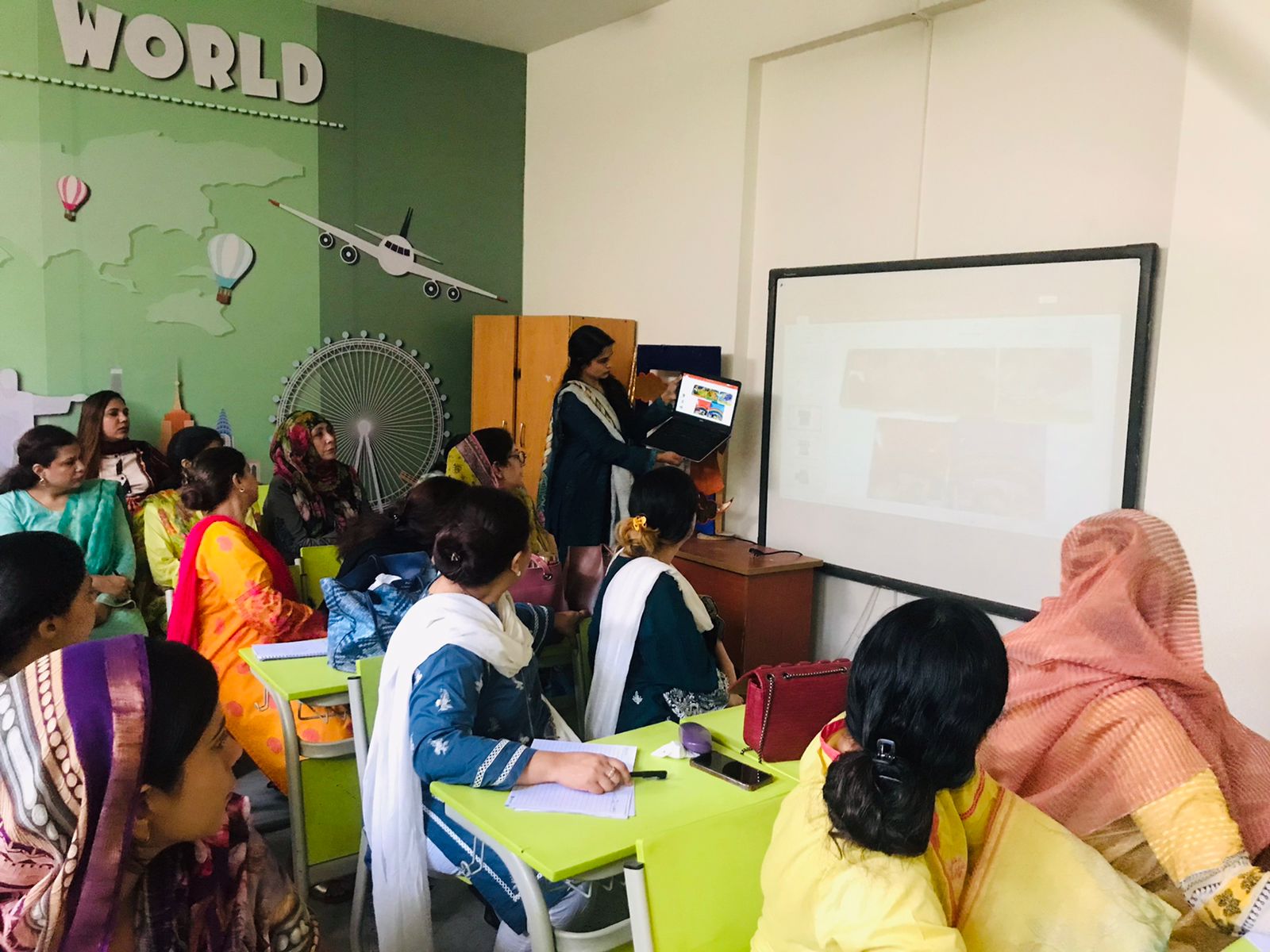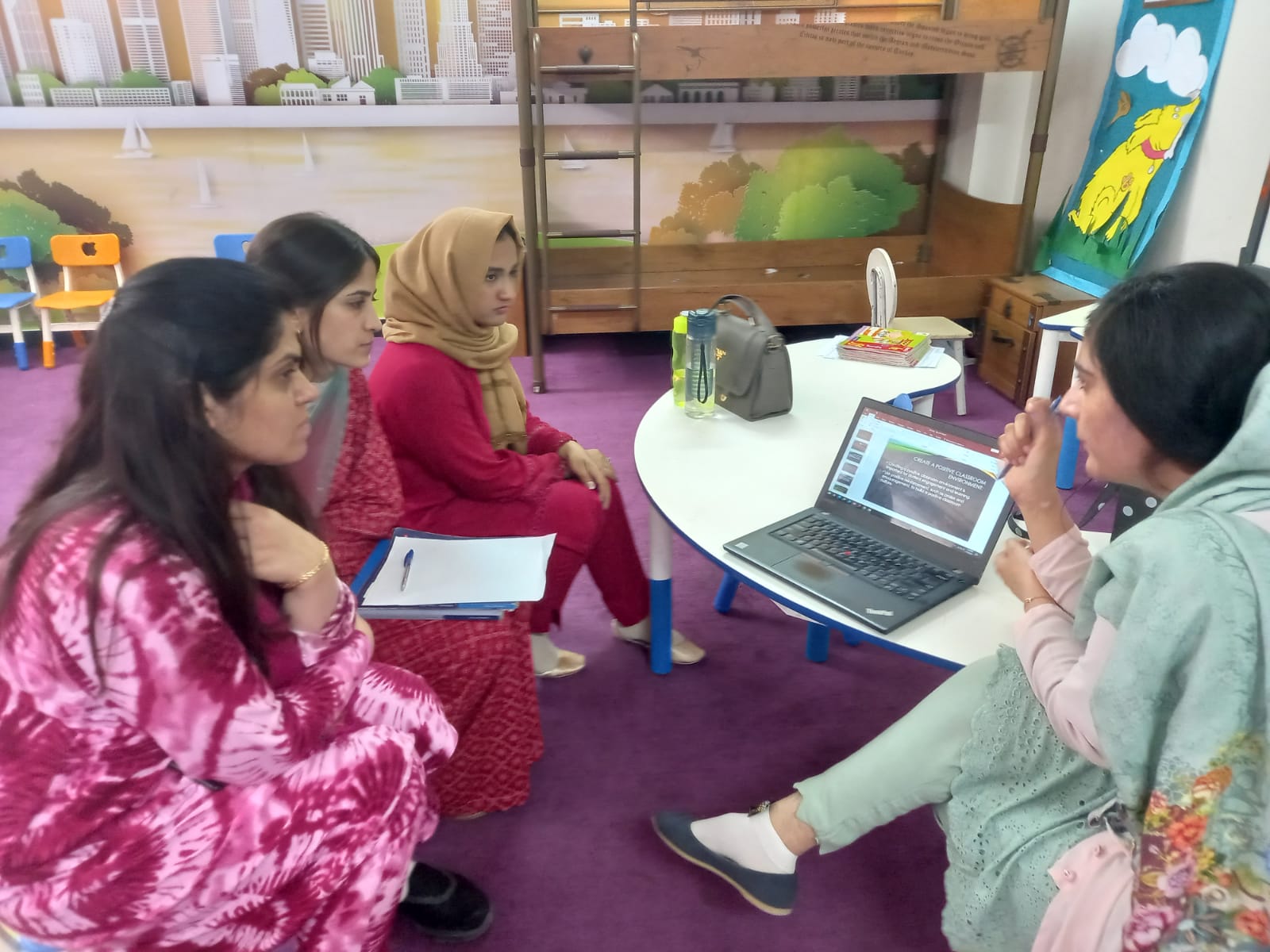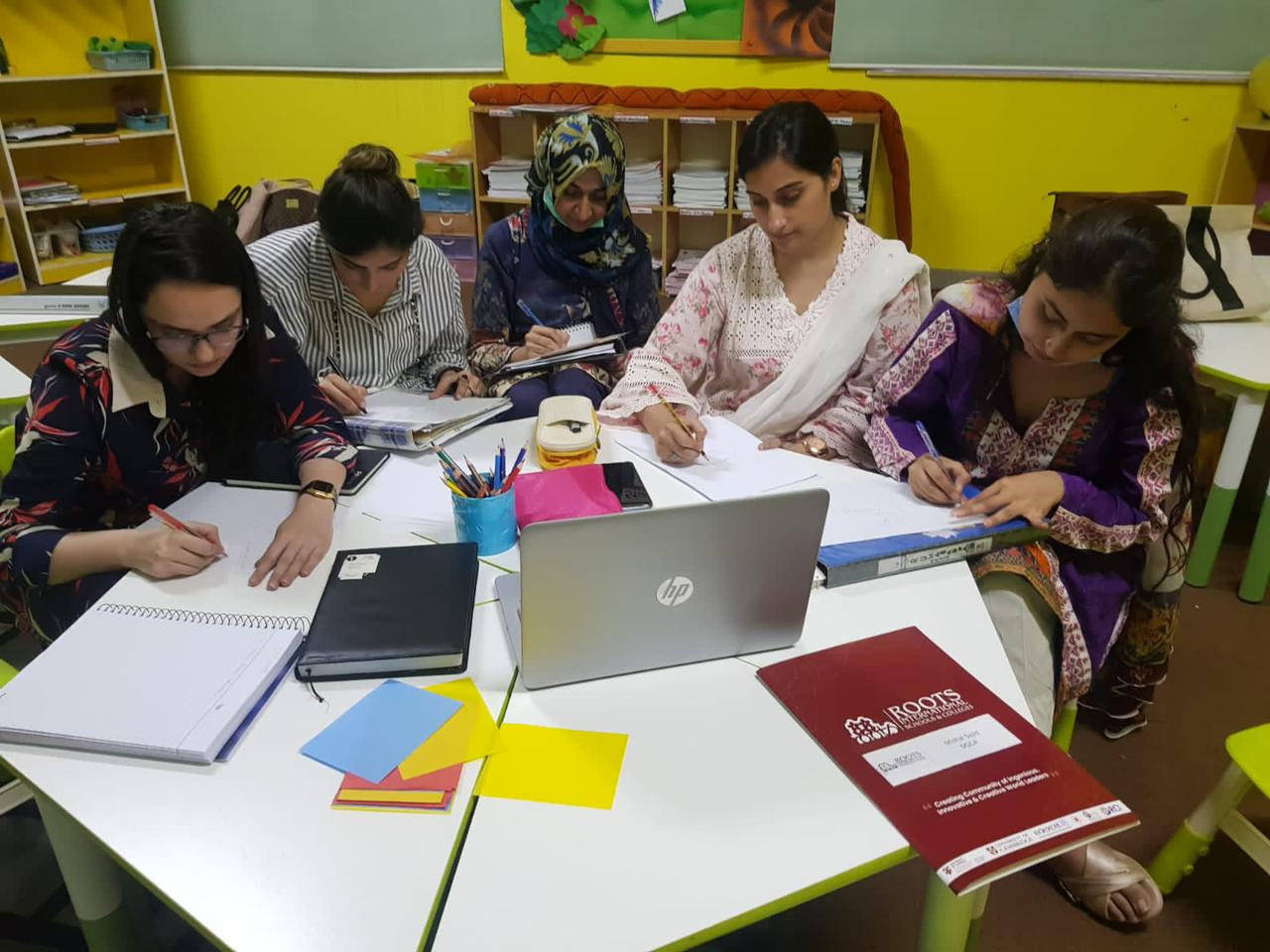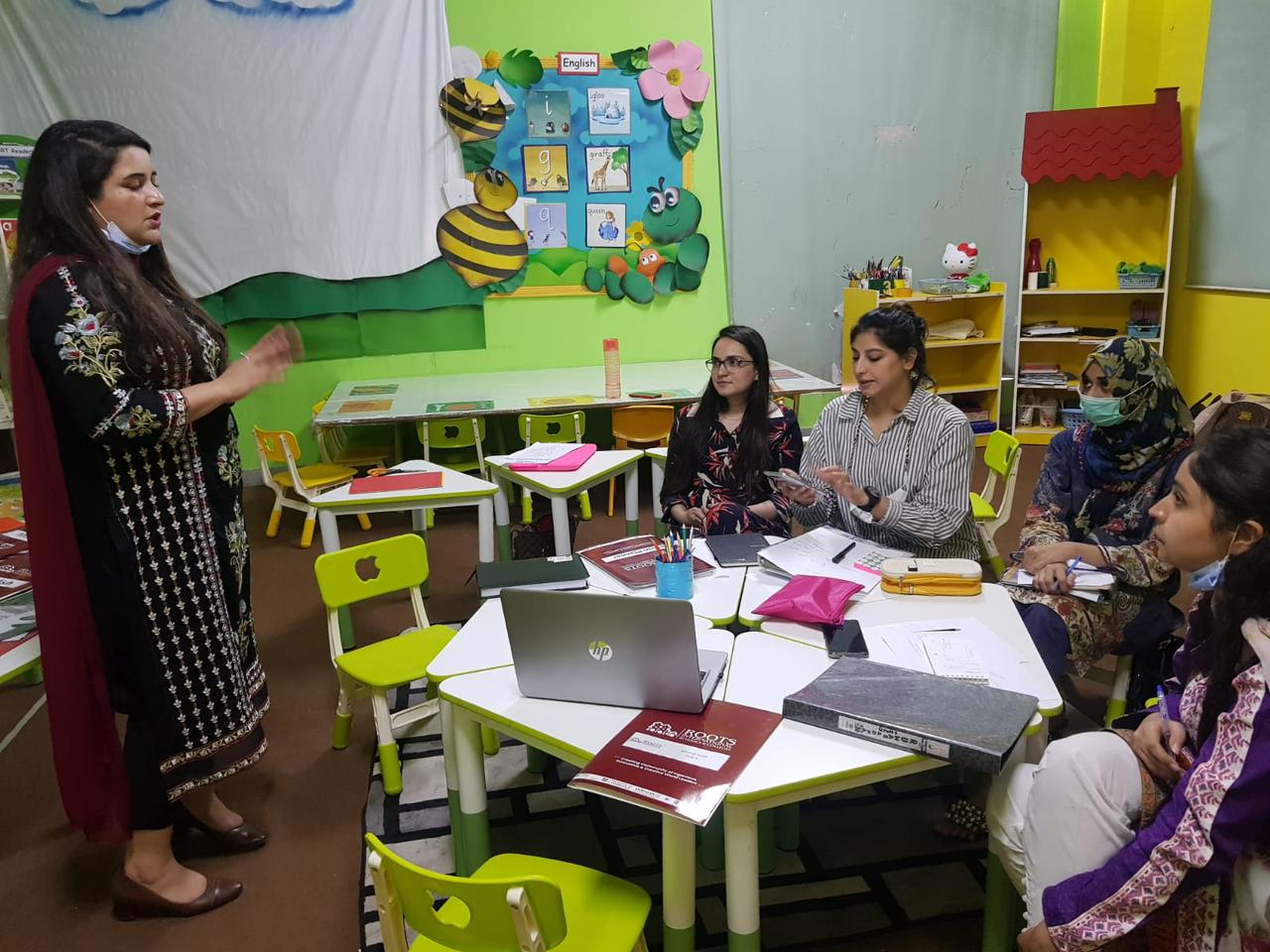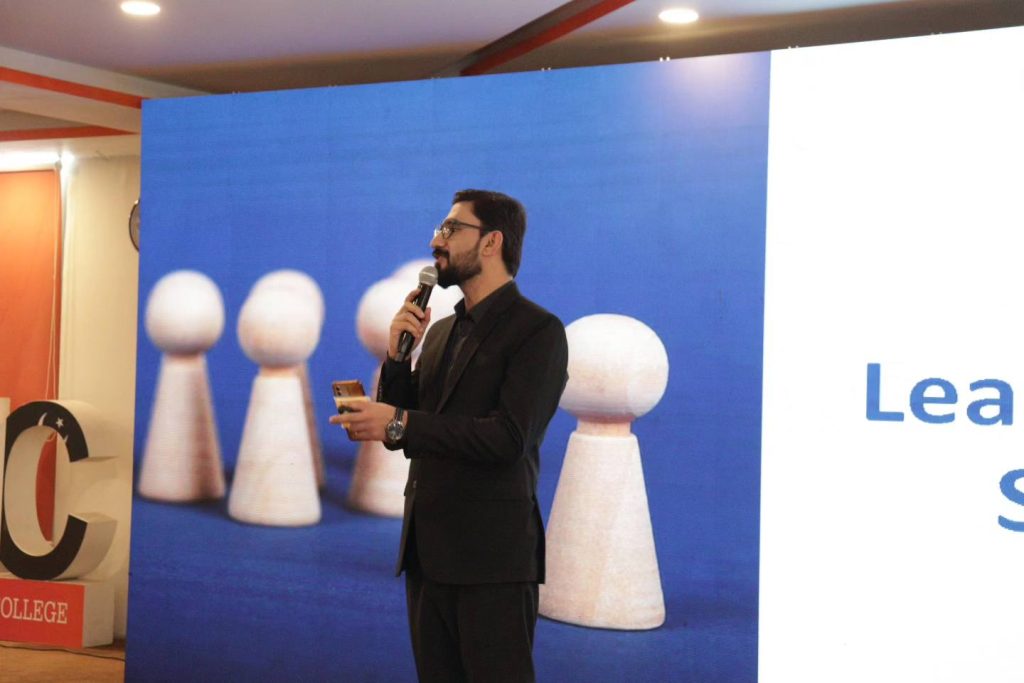
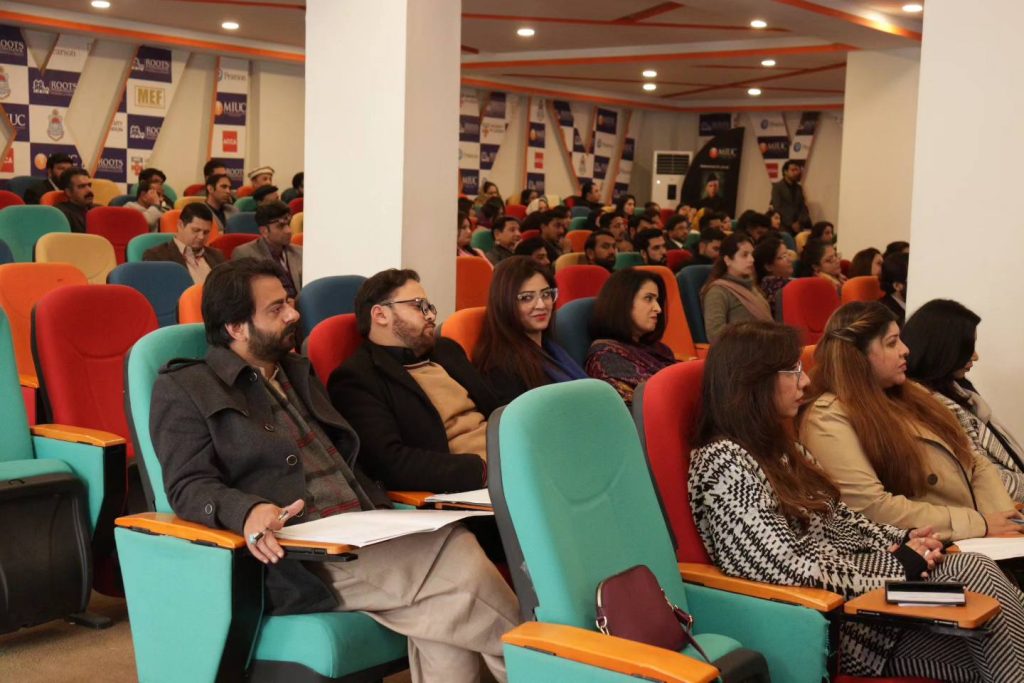
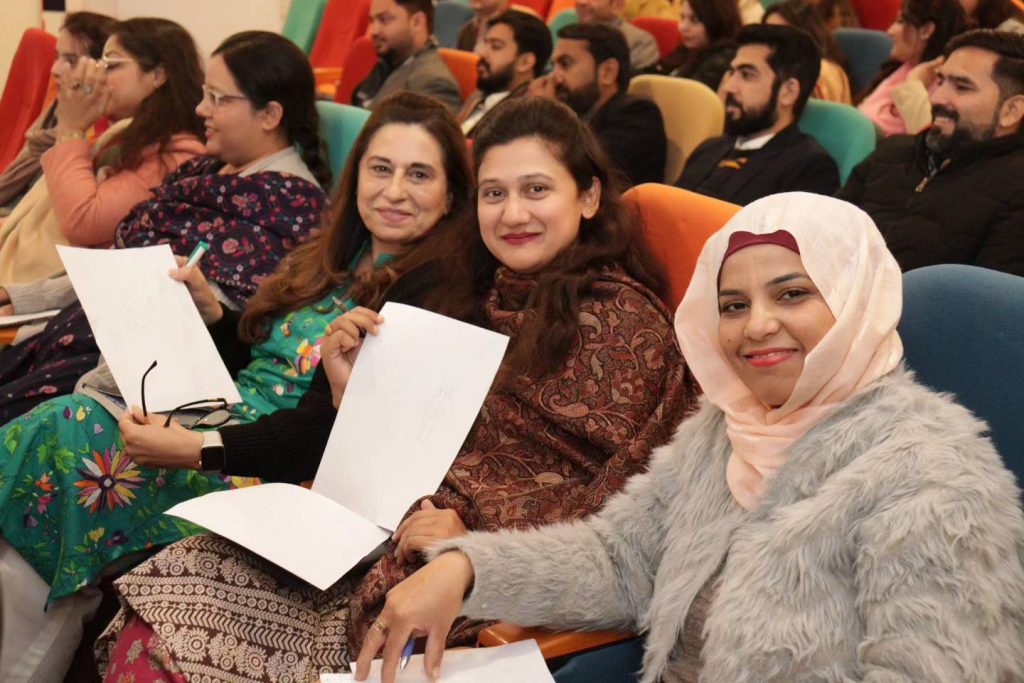
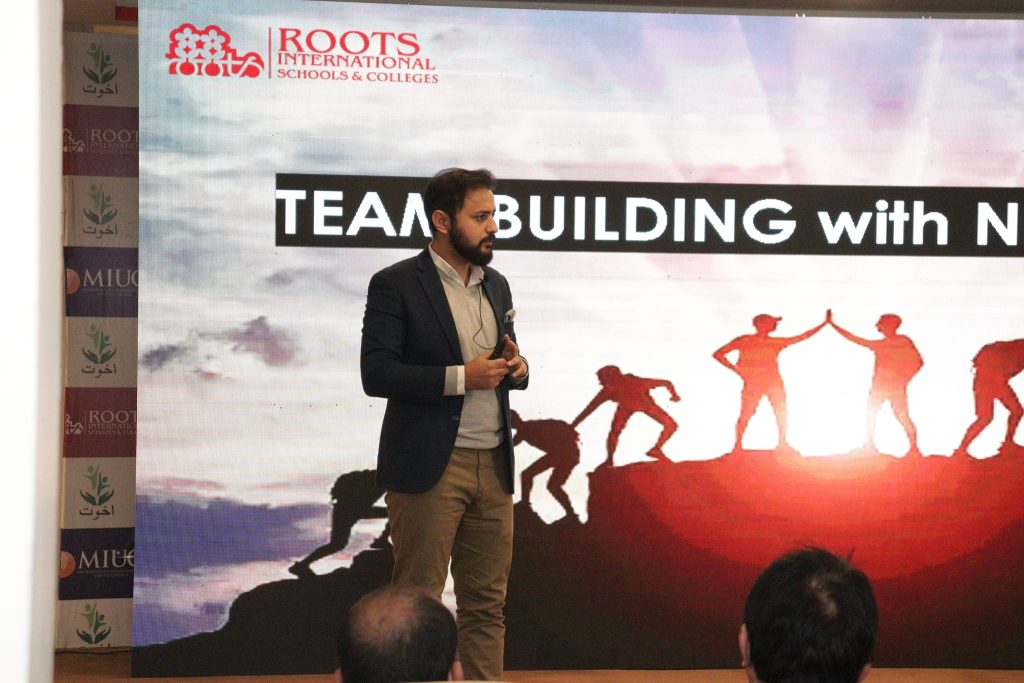
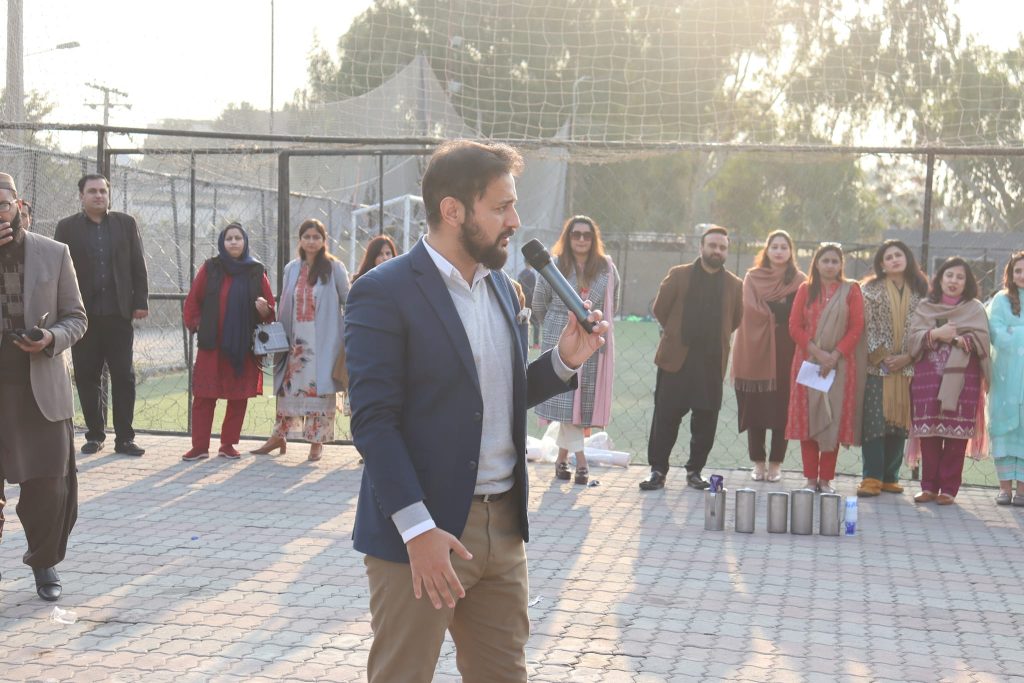
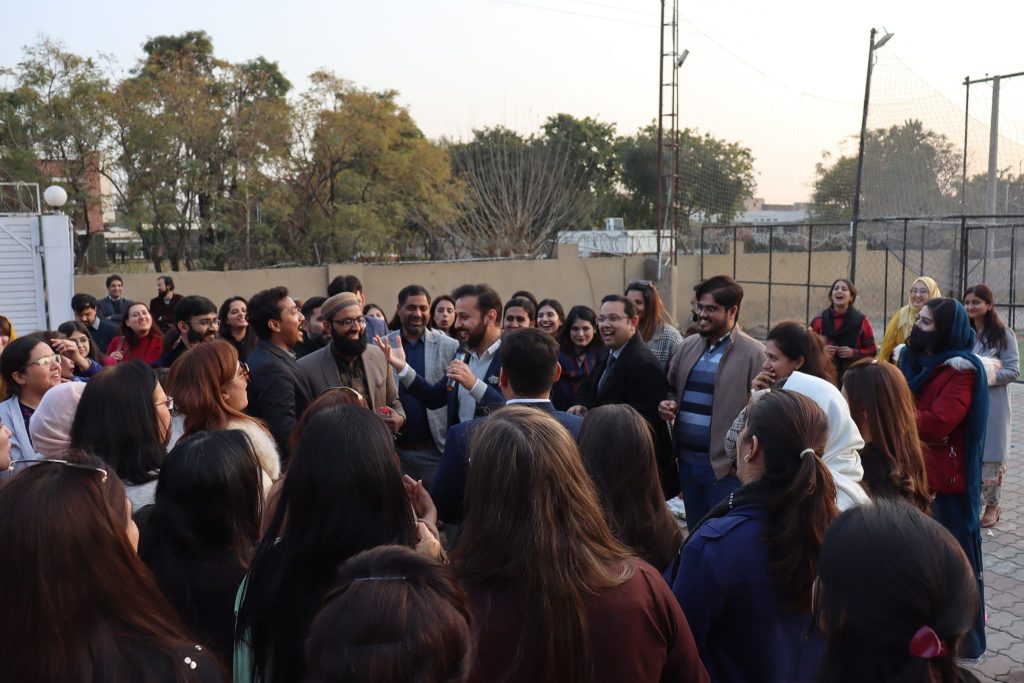
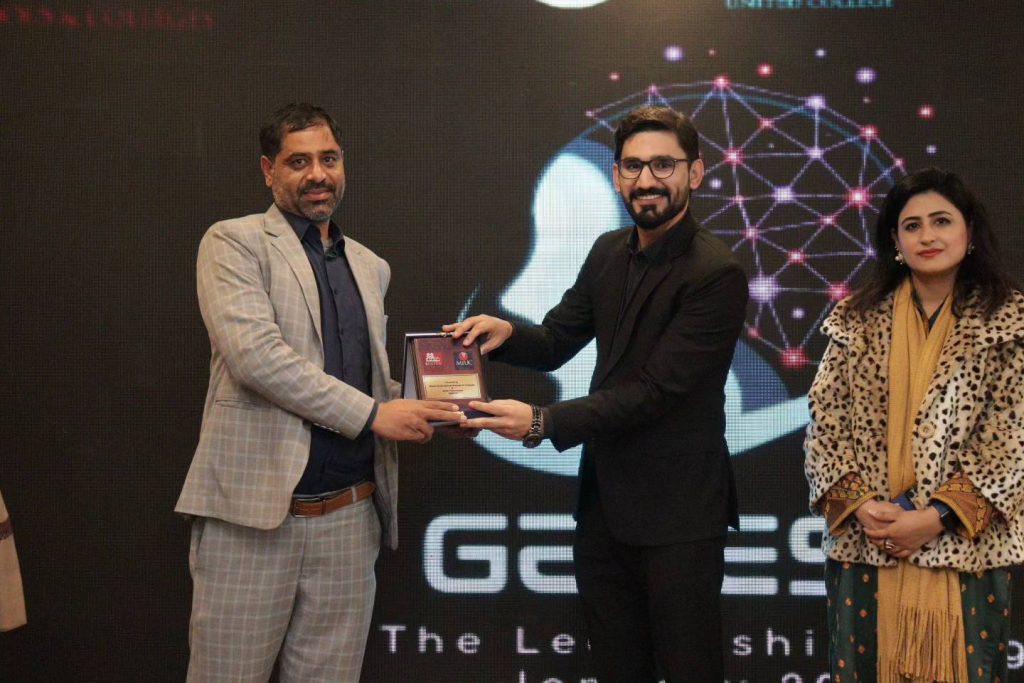
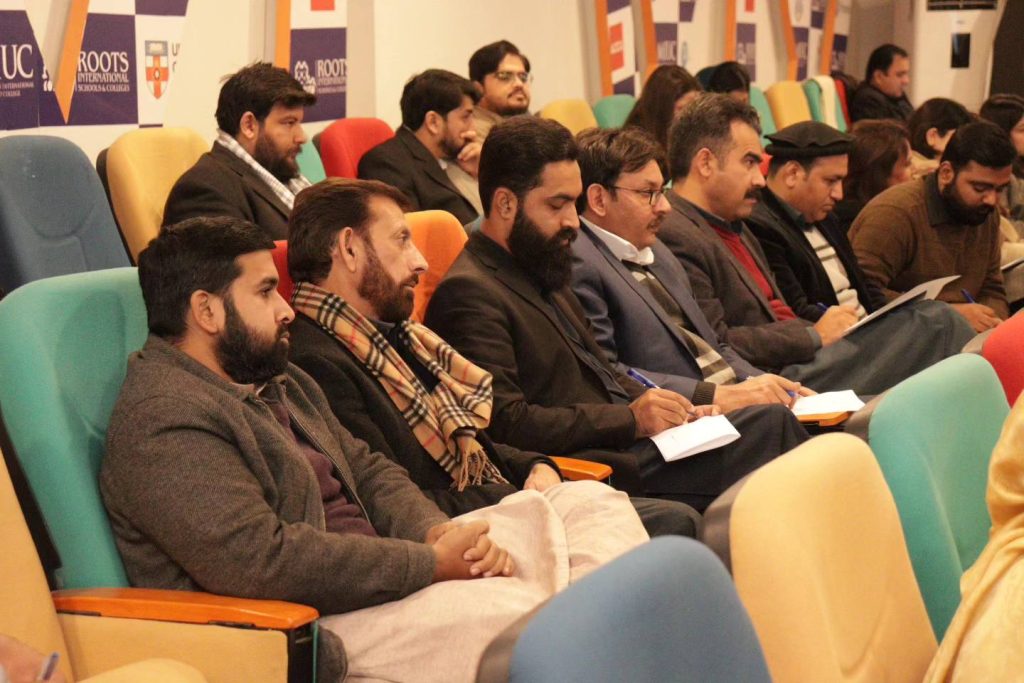
Roots International Schools & Colleges believes in growth through training and professional excellence and keeping up with tradition, Reflect 2022, an intensive capacity building, training programme was arranged at MIUC, H-8/4, Islamabad.
Management teams from branches all over Pakistan attended the two day session. Day 1 included Information based activities: planned and executed by RISC Head Office teams; lead by Department of Qualifications, Curriculum & Assessment (DQCA). The session was overseen by CEO Roots International Schools & Colleges, Mr. Walid Mushtaq himself.
Second day of Reflect 2022 focused on training of various departments. Interactive training sessions enabled participants to relate and inquire, particularly about their areas of concern and allowed for a more robust participation. The session was attended by principals, admission advisors, campus managers and other members of RISC team.
The objective of this training was to equip participants with all required knowledge of advanced practices in the field of education management. The two day programme concluded with a formal dinner and certificate distribution ceremony.
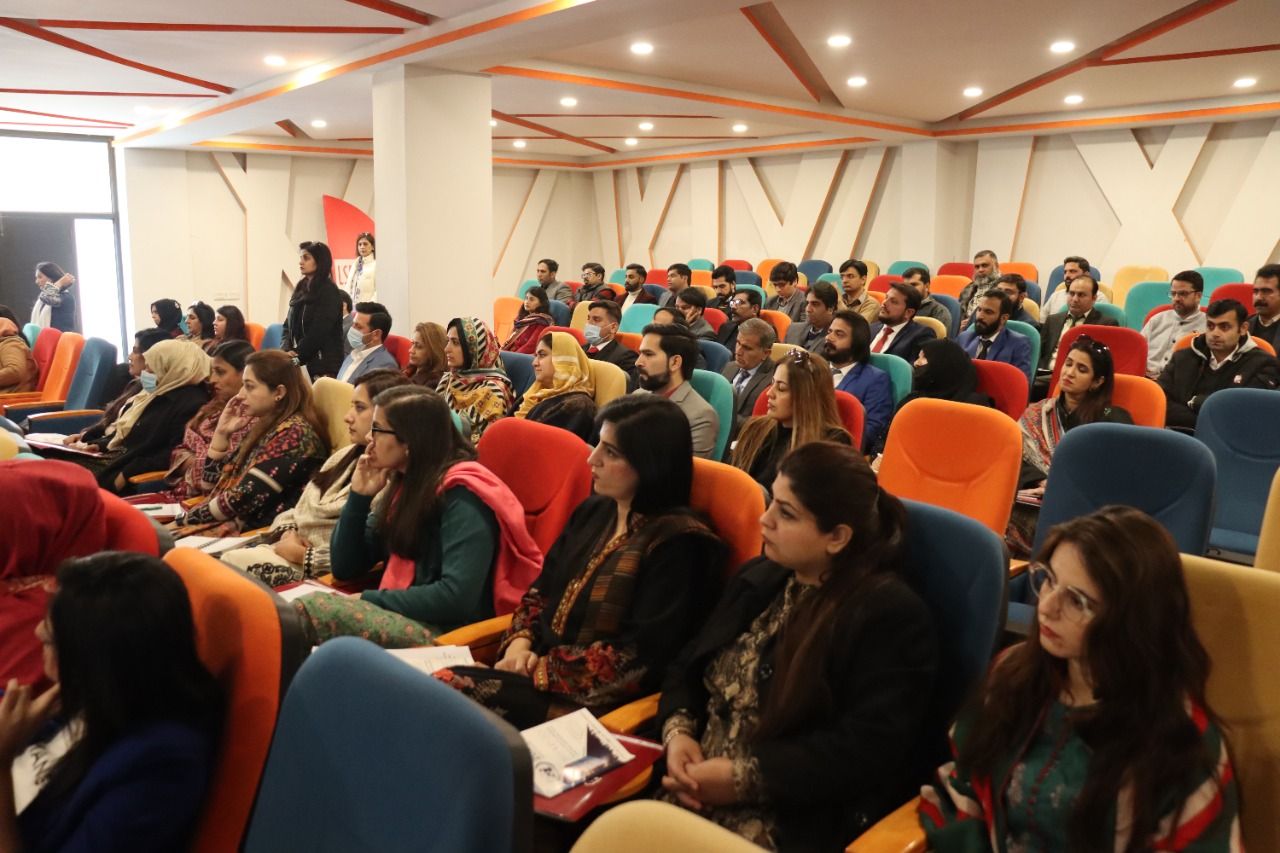
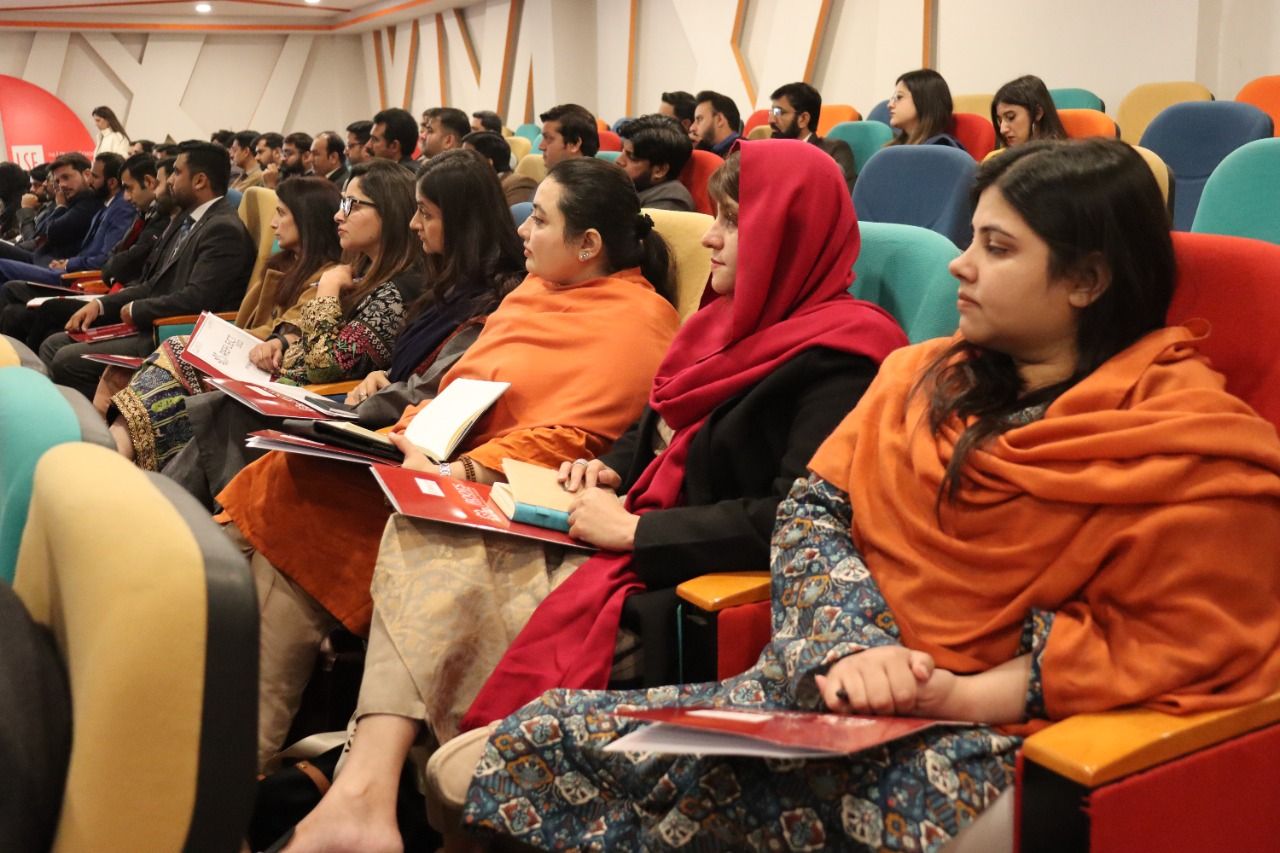
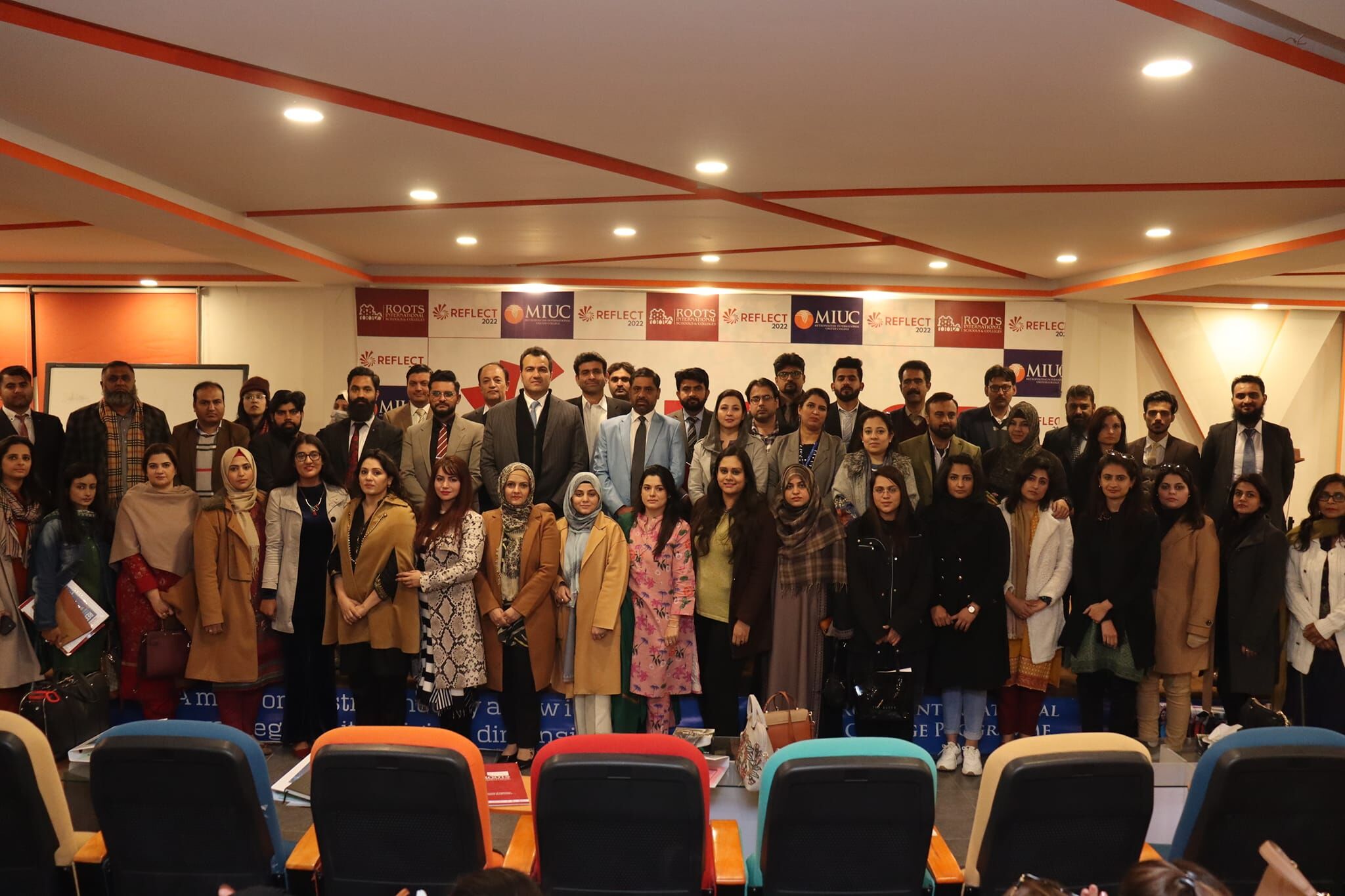
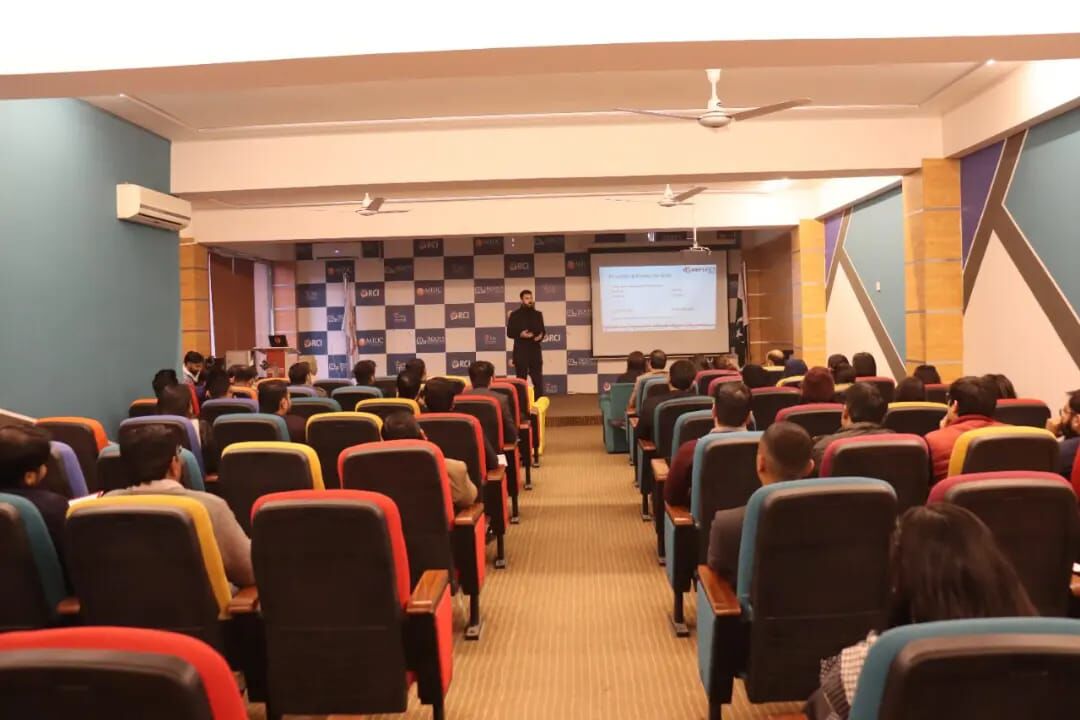
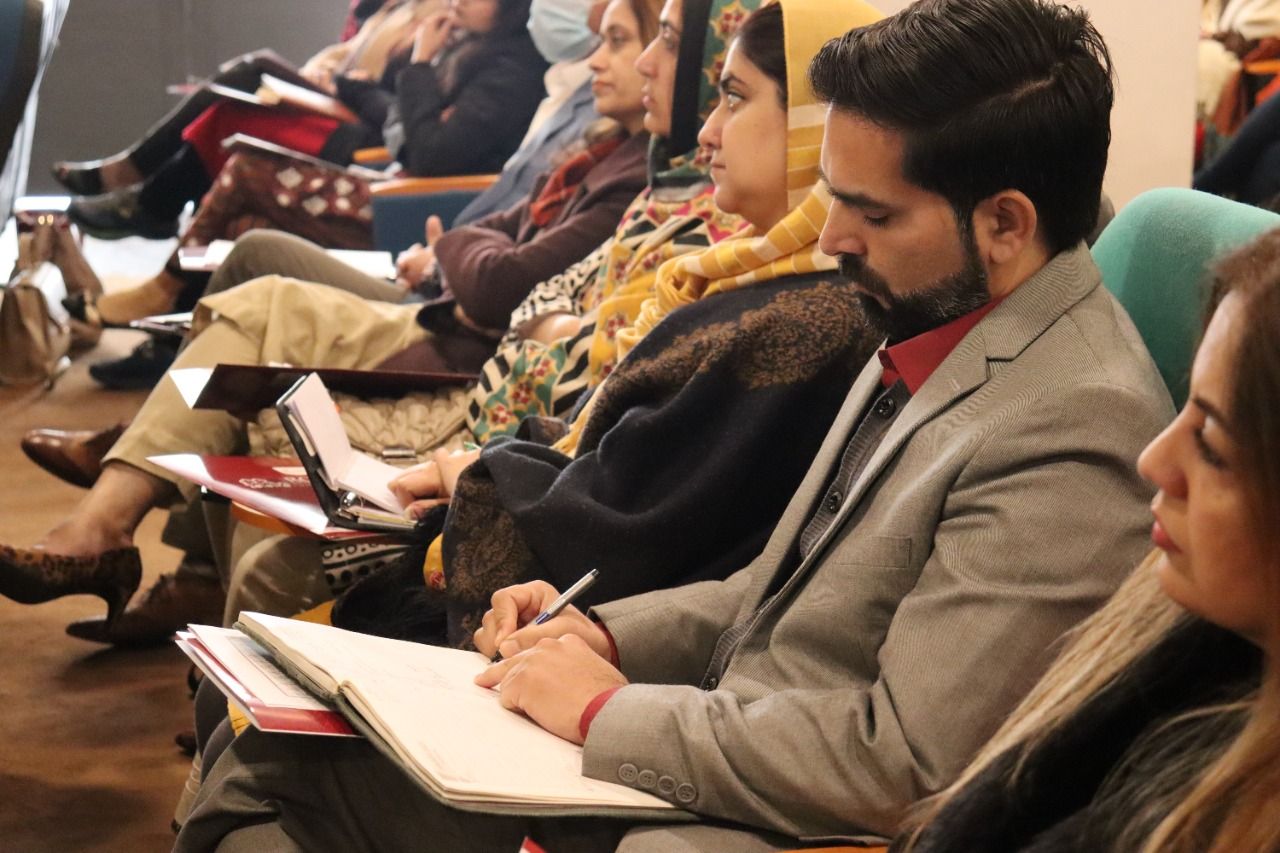
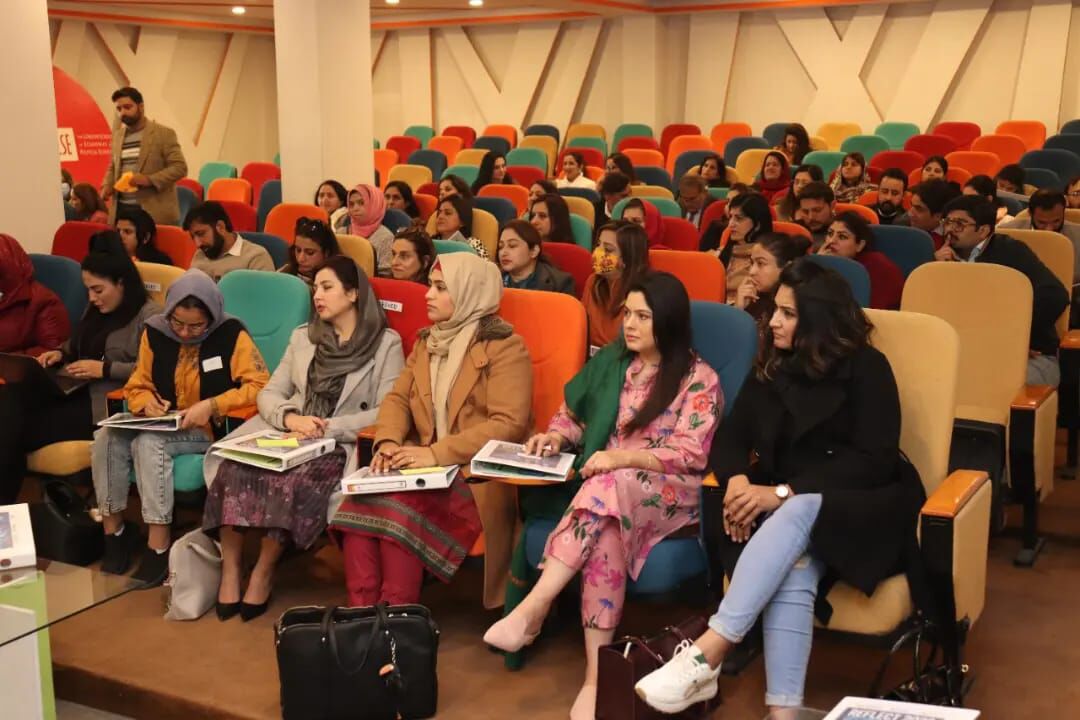
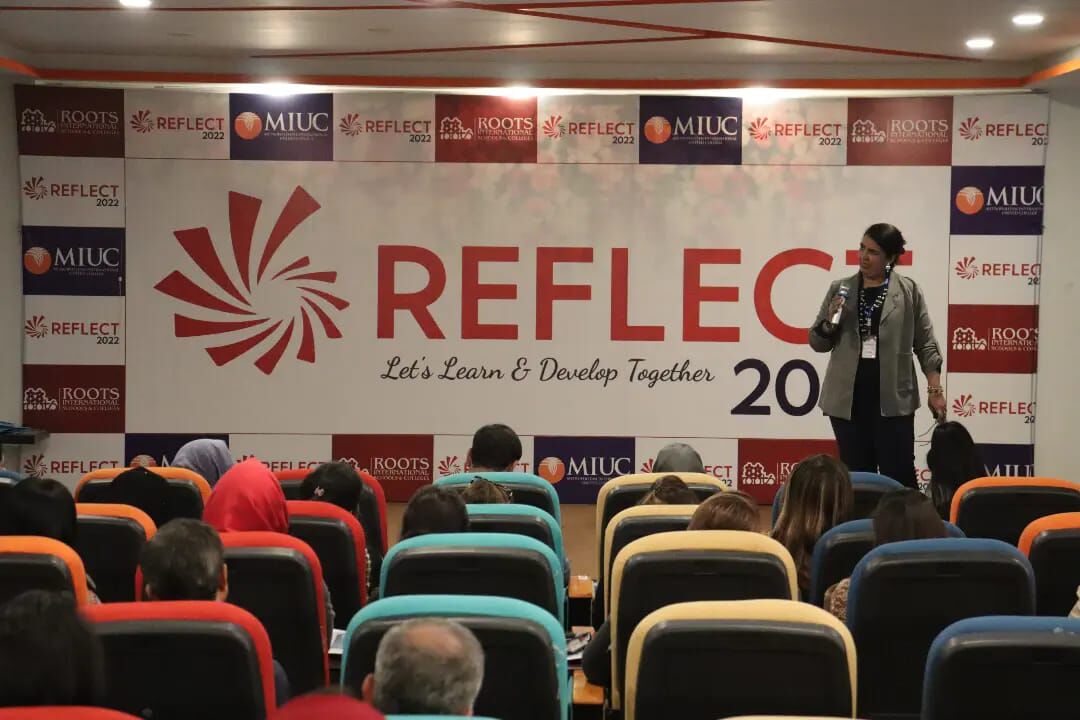

At RISC, we believe that continuous learning is essential for both educators and learners. With that in mind, our cluster trainings focus on providing professional development opportunities for teachers to enhance their academic strategies and methods.
Our trainings are designed to equip teachers with latest teaching techniques and strategies that have proven to be effective in engaging students, improving their academic performance, and preparing them for a successful career. Through our cluster trainings, teachers gain a deeper understanding of their roles as educators and learn how to create a more positive learning environment that promotes critical thinking and creativity.
Our training programs are designed to meet the needs of different academic levels, ranging from primary to tertiary education. Our facilitators are seasoned professionals with extensive experience in education and training. They are equipped with the latest research and best practices in education, which they impart to our teachers.
Our cluster trainings are also tailored to cater to the specific needs of schools, districts, and regions. We work closely with our clients to develop custom training programs that address their unique challenges and goals. We believe that this approach is essential in ensuring that our training programs are relevant, practical, and effective.
Learning is a lifelong process that extends beyond the classroom. That’s why we offer on-campus trainings for our staff to enhance their skills and knowledge. Our on-campus trainings are designed to provide both need-based and subject-based trainings that are tailored to meet the specific needs of our staff.
We understand that different staff members have unique challenges and responsibilities, which is why our training programmes are designed to be flexible and customizable. Whether it’s a need-based training to address a specific challenge or a subject-based training to enhance knowledge and skills, our trainings are designed to provide practical solutions that can be immediately applied in the classroom.
Some of the topics covered in our cluster trainings include:
- Classroom Management
- Curriculum Design and Implementation
- Assessment and Evaluation
- Instructional Design and Delivery
- Educational Technology
- Differentiated Instruction
- Student-Centered Learning
- Collaborative Learning
- Teacher Leadership
Our trainings are not just about acquiring knowledge, but also about building a supportive and collaborative community of educators. We believe that the power of learning comes from the connections we make and the ideas we share. Our cluster trainings provide a platform for teachers to network, collaborate, and share their experiences and ideas
We believe that school leaders play a critical role in shaping the future of education. With that in mind, we offer a comprehensive training and professional development programme that equips school leaders with the latest technology tools, data analysis techniques, 21st century skills, and effective management strategies.
Our programme is designed to provide school leaders with the knowledge and skills necessary to drive innovation and create a more engaging and personalized learning environment for students. We focus on helping school leaders unlearn old practices and relearn new ones that are relevant to the rapidly changing educational landscape.
Our programme covers a wide range of topics, including:
- Vision and mission development using data analysis and visualization tools
- Strategic planning for school improvement using technology tools for project management and collaboration
- Curriculum design and implementation using learning analytics and assessment tools to personalize learning
- Instructional design and delivery using educational technology tools to promote 21st century skills such as critical thinking, problem-solving, and creativity
- Differentiated instruction using data-driven decision making and adaptive learning technologies
- Student-centered learning using digital portfolios, gamification, and other tools that promote student engagement and ownership of learning
- Collaborative learning using social media, online communities, and other tools that promote collaborative learning and knowledge sharing
- Teacher leadership using effective communication, coaching, and mentoring strategies to support teacher professional development and growth
- Human resource management using data analysis, HR information systems, and other tools to optimize staffing and resource allocation
- Financial management using budgeting and financial analysis tools to optimize resource allocation and financial sustainability
- Change management: Strategies for leading and managing organizational change, including developing a change management plan, commun
- icating change to stakeholders, and building buy-in and support for change initiatives.
- Conflict resolution: Techniques for identifying and addressing conflicts in the workplace, including active listening, mediation, negotiation, and problem-solving approaches.
- Emotional intelligence: Developing emotional intelligence skills to effectively manage relationships with colleagues, staff, and stakeholders, and to navigate complex organizational dynamics.
- Effective communication: Strategies for clear, concise, and effective communication in the workplace, including active listening, nonverbal communication, and adapting communication style to different audiences.
- Performance management: Techniques for setting clear performance expectations, providing feedback and coaching, and conducting performance evaluations that support staff development and growth.
- Time management: Approaches for managing time effectively, prioritizing tasks, and minimizing distractions to increase productivity and achieve goals.
- Creative problem solving: Techniques for generating creative solutions to complex problems, including brainstorming, mind mapping, and other creative problem-solving approaches.
- Data-driven decision making: Using data to inform decision making, including collecting, analyzing, and interpreting data, and using data to identify trends and make evidence-based decisions.
- Risk management: Identifying and mitigating risks in the workplace, including developing risk management plans, conducting risk assessments, and developing contingency plans.
- Continuous improvement: Developing a culture of continuous improvement in the workplace, including using feedback to drive improvements, conducting regular assessments and evaluations, and promoting a growth mindset
Our programme is facilitated by seasoned professionals with extensive experience in education, technology, data analysis, and management. We use a variety of training methods and tools, including online learning platforms, interactive workshops, webinars, and coaching sessions, to ensure that school leaders receive personalized and impactful training.
- Language Arts: Our language arts training programme is designed to help teachers improve literacy instruction and develop reading and writing skills in their students. We provide training on strategies for teaching phonics, vocabulary, grammar, and comprehension, as well as methods for implementing effective writing workshops. Our languages trainings focus on all four skills of language learning: reading, writing, listening, and speaking. Participants will learn strategies for developing these skills, using creative writing techniques to encourage student expression, and incorporating technology into language instruction. They will also learn how to use authentic materials and activities to enhance language learning, and how to assess language learning effectively.
- Math: Our math training programme is focused on deepening teachers’ understanding of mathematical concepts and helping them integrate real-world problems into math instruction. We provide training on developing problem-solving skills, promoting mathematical discourse, and creating meaningful math tasks. We also offer training on improving assessment practices, such as developing formative and summative assessments that align with learning objectives.
- Science: Our Science trainings focus on STEM (Science, Technology, Engineering, and Mathematics) and inquiry-based teaching. Participants will learn how to engage students in hands-on, inquiry-based learning, and develop critical thinking and problem-solving skills. They also learn how to incorporate technology into science instruction, use real-world examples to illustrate scientific concepts, and design assessments that effectively measure student learning
- Social Studies: Our social studies training programme focuses on implementing inquiry-based approaches to social studies instruction, integrating technology into social studies instruction, and using primary sources to deepen understanding of history. We provide training on developing critical thinking skills, promoting historical thinking, and creating meaningful social studies tasks. We also offer training on improving assessment practices, such as developing formative and summative assessments that align with learning objectives.
- History: Our History trainings focus on inquiry-based approaches to teaching history, using primary sources to deepen understanding of historical events, and incorporating technology into history instruction. Participants learn strategies for developing critical thinking and analytical skills, and for engaging students in active learning through discussions, debates, and research projects. They also learn how to use primary sources to develop historical thinking skills, and how to design assessments that effectively measure student learning.
- Geography: Our Geography trainings focus on developing spatial thinking skills, using technology to enhance geographic understanding, and incorporating real-world examples into geographic instruction. Participants learn how to use maps and other visual aids to develop spatial thinking skills, how to incorporate technology into geographic instruction, and how to design assessments that effectively measure student learning. They also learn how to use authentic materials
